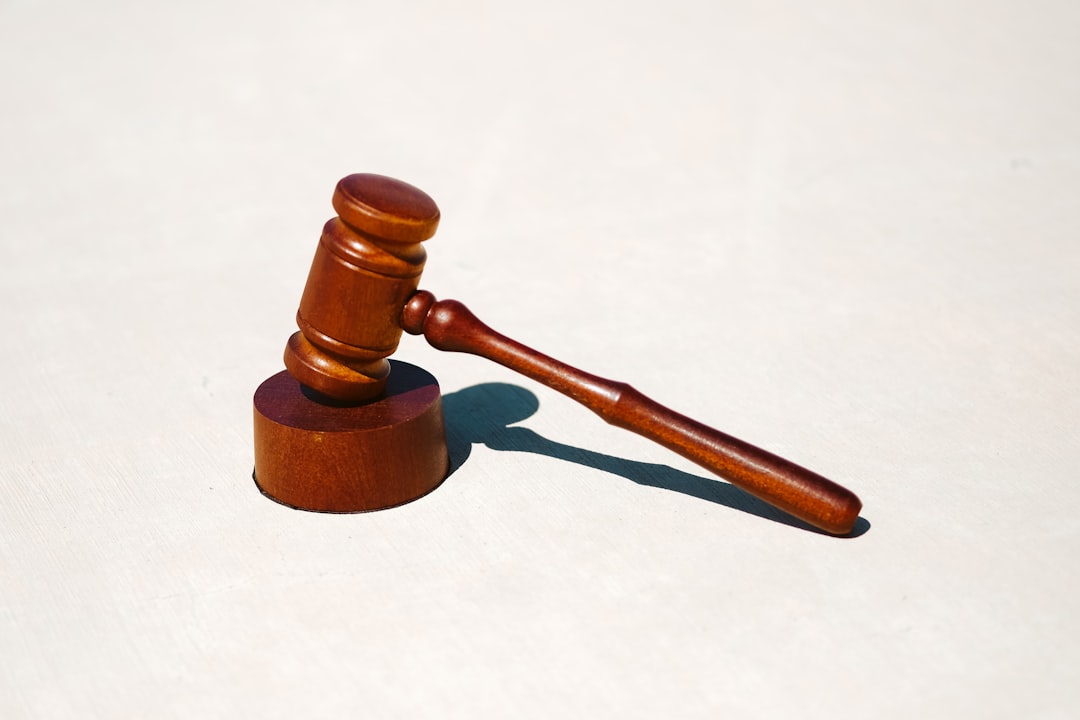Maryland's Consumer Protection Act and Telephone Consumer Protection Act (TCPA) strictly regulate spam calls, including those from law firms, to protect residents from intrusive marketing. Unwanted text messages or automated calls are considered illegal spam if sent without explicit consent, characterized by frequency, and violating consumer protection laws. A Spam Call law firm Maryland assists consumers in navigating these complex regulations, filing complaints, and holding spammers accountable through legal processes like the Attorney General's Office and Maryland Department of Agriculture's Consumer Protection Division.
In Maryland, the legal landscape surrounding spam text messages is as complex as it is critical. This article delves into the state’s stringent definitions and protections against unsolicited text messages, known as spam calls. We explore Maryland’s specific legal framework, consumer rights, prohibited practices, and available remedies for victims. Furthermore, we clarify key exclusions and debunk common misconceptions, offering valuable insights for both consumers and a leading Spam Call law firm in Maryland.
Maryland's Legal Definition of Spam Calls

In Maryland, the legal definition of spam calls is outlined in the state’s Consumer Protection Act. According to this legislation, a spam call is any unsolicited telephone call made for commercial purposes using an automatic dialing system or prerecorded message. This includes calls from law firms seeking to advertise their services or solicit potential clients.
Maryland has strict regulations against such practices to protect residents from intrusive and often deceptive marketing tactics. The state’s laws allow consumers to file complaints against law firms engaging in spam calling, and violators can face penalties. A reputable spam call law firm in Maryland can guide individuals on their rights and help navigate the legal process if necessary, ensuring that both businesses and consumers understand and adhere to these important regulations.
Protections for Consumers Under State Law

In Maryland, consumers are protected from unwanted spam calls through various state laws designed to safeguard personal privacy and consumer rights. The Maryland Department of Labor, Licensing, and Regulation (DLAR) enforces these regulations, ensuring that businesses adhere to strict guidelines when contacting residents. Under the state’s Telephone Consumer Protection Act (TCPA), companies must obtain explicit consent before placing automated or prerecorded calls to individuals, effectively curbing spam call law firm practices.
These protections extend beyond telephone communications, encompassing various forms of electronic messaging, including text and email spam. Maryland’s Comprehensive Law on Consumer Protection offers additional safeguards, prohibiting deceptive or misleading practices in marketing and advertising. As a result, consumers can rest assured that they have recourse against relentless spam call law firms and similar intrusive behaviors, with the TCPA and consumer protection laws serving as powerful tools to maintain peace of mind and personal space.
Unlawful Practices and Penalties Involved

In Maryland, engaging in spam text practices is illegal and can result in severe penalties. The state’s statutes define spam as unsolicited texts sent to individuals or groups with the intent to market or promote products or services. This includes messages that are considered obtrusive, intrusive, or annoying, often characterized by their frequency and lack of consent from the recipient.
The law firm specializing in spam call laws in Maryland can guide individuals and businesses on how to stay compliant. Penalties for violating these laws can include substantial fines and legal repercussions. Businesses found guilty of sending spam texts may face lawsuits, with damages awarded to affected consumers. Additionally, companies may be required to implement stricter anti-spam measures to prevent future violations.
Enforcement and Legal Recourse for Victims

In Maryland, the enforcement of spam text laws is handled by various agencies, primarily the Attorney General’s Office. Victims of unwanted text messages can report these incidents to the Maryland Department of Agriculture’s Consumer Protection Division, which has the authority to investigate and take legal action against violators. The state’s robust legal framework provides several avenues for recourse.
If you’ve been a target of spam calls or texts, contacting a reputable spam call law firm in Maryland is advisable. These firms specialize in navigating the complexities of telecommunications laws and can offer guidance tailored to your situation. By taking proactive measures and seeking legal counsel, victims can protect their rights and hold perpetrators accountable under Maryland’s strict anti-spam legislation.
Key Exclusions and Common Misconceptions

In the realm of spam call regulation, it’s crucial to understand the legal definitions and exclusions as outlined in Maryland statutes. One common misconception is that all unsolicited texts or calls are considered spam. However, according to Maryland law, there must be a specific violation of the state’s consumer protection regulations for a communication to be legally termed a spam call. This includes excessive or unwanted contact, often characterized by automated or prerecorded messages.
Another exclusion worth noting is consent. If an individual has explicitly agreed to receive communications from a particular sender, it won’t fall under the category of spam calls. This can create a misleading perception that all marketing efforts are frowned upon, but in reality, businesses operating within legal boundaries and with consumer consent can effectively engage their target audience without crossing into the realm of illegal spam call laws.






